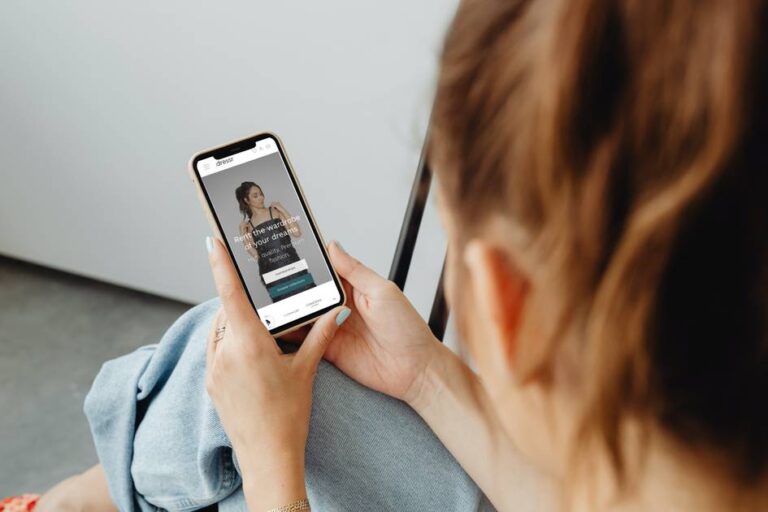Research shows that clothing rental is one of the promising solutions to make fashion more sustainable and change habits. Thomas More researcher Jolien Roedolf gives some reasons to be enthusiastic about clothing rental as a game changer in the search for a sustainable fashion sector.
Jolien Roedolf researches circular business models such as rental, second-hand and repair for consumer textiles at the Expertise Center for Sustainable Entrepreneurship and Digital Innovation at Thomas More University of Applied Sciences.
Fewer clothing purchases through subscription
Renting clothes for an occasion is something we have considered normal for some time. For example, consider renting wedding suits. With new concepts offering clothing rental of everyday clothing, we are now in new territory. Intuitively we think: you rent clothes, so you have less need to buy new ones. But are tenants really buying less?
A recent study by the French Business School EDHEC and the Belgian UCL Louvain examined how clothing rental influences the consumption behavior of tenants. The research shows that most respondents who rent clothing purchase less new clothing or at least the same amount. Only 6 percent of those surveyed are in the group that would buy significantly more clothing.
These results are consistent with our research at Thomas More University of Applied Sciences among 57 Dressr tenants in 2024. Since their membership, Dressr tenants have purchased less new clothing. As many as four in five tenants have purchased clothing at most four times a year since their membership. For two in three tenants, the total expenditure on clothing also decreased. Only one in ten indicate that their clothing budget is slightly higher with membership. This is good news. It indicates that renting clothes can cause lasting changes in purchasing behavior. Dressr users indicate that renting has now become a habit and that they make fewer impulse purchases (and therefore bad purchases). This means there are fewer unworn clothes in the closet. Rent because we want variety
Changing behavior and habits is not that simple. This also applies to our clothing habits. The Fashion Monitor 3, a study into sustainable fashion in 2024 by Thomas More University of Applied Sciences among 430 respondents, shows that climate awareness among people is growing, but this does not translate into behavior. We even take the environment into account less than 3 years ago when making our clothing purchases.
We therefore have to look for other arguments to convince people to join the circular business models. We buy clothes because we want to feel good, it gives us self-confidence and we like to be creative with it. This is evident from 20 in-depth interviews we conducted within the Infinitex research project. If circular business models, such as rental, second-hand or repair, want a place in our wardrobe, they can best meet these emotional needs.
Clothing rental is already succeeding in this. 69 percent of Dressr customers say they rent clothes because it gives them access to more expensive brands that they otherwise wouldn’t buy. For 57 percent of respondents, rented clothing also brings more variety to their closet and 55 percent indicate that it allows them to try out different styles. And 57 percent also say: it’s just easy.
Monitor rebound effects
The Belgian-French researchers also find negative rebound effects associated with clothing subscriptions. Some of those surveyed in their study indicate that they will spend more money on clothing for others (for example their children) and other things if they rent clothing, because they save on their clothing budget. It is interesting to find out where the tenants’ extra expenses go. They may invest in better quality items, which will have a positive impact in the long term. The rebound effect does not necessarily have to be negative, but it remains a point of attention.
Call for more experimentation
Rental models are an important part of the solution. Thanks to clothing rental, people save money on their clothing expenses and develop different clothing habits: they take good care of the rented clothing and feel less need to make impulsive purchases. In addition, clothing rental meets our need for variety and quality in the wardrobe. Negative rebound effects appear to be a concern, but they do not outweigh the potential benefits of long-term renting. Rental offers an innovative way to continue experiencing fashion without overconsumption. As a fashion sector, let us experiment even more with different rental models.


